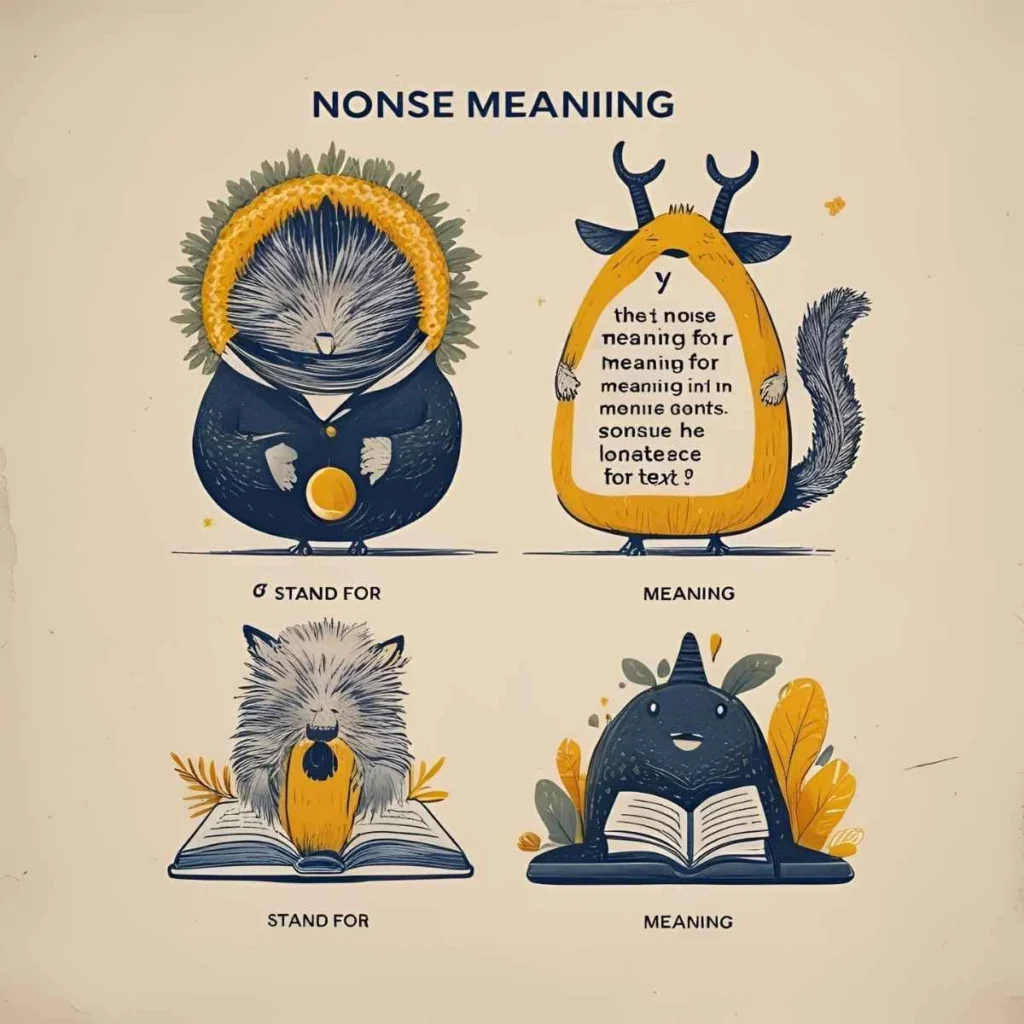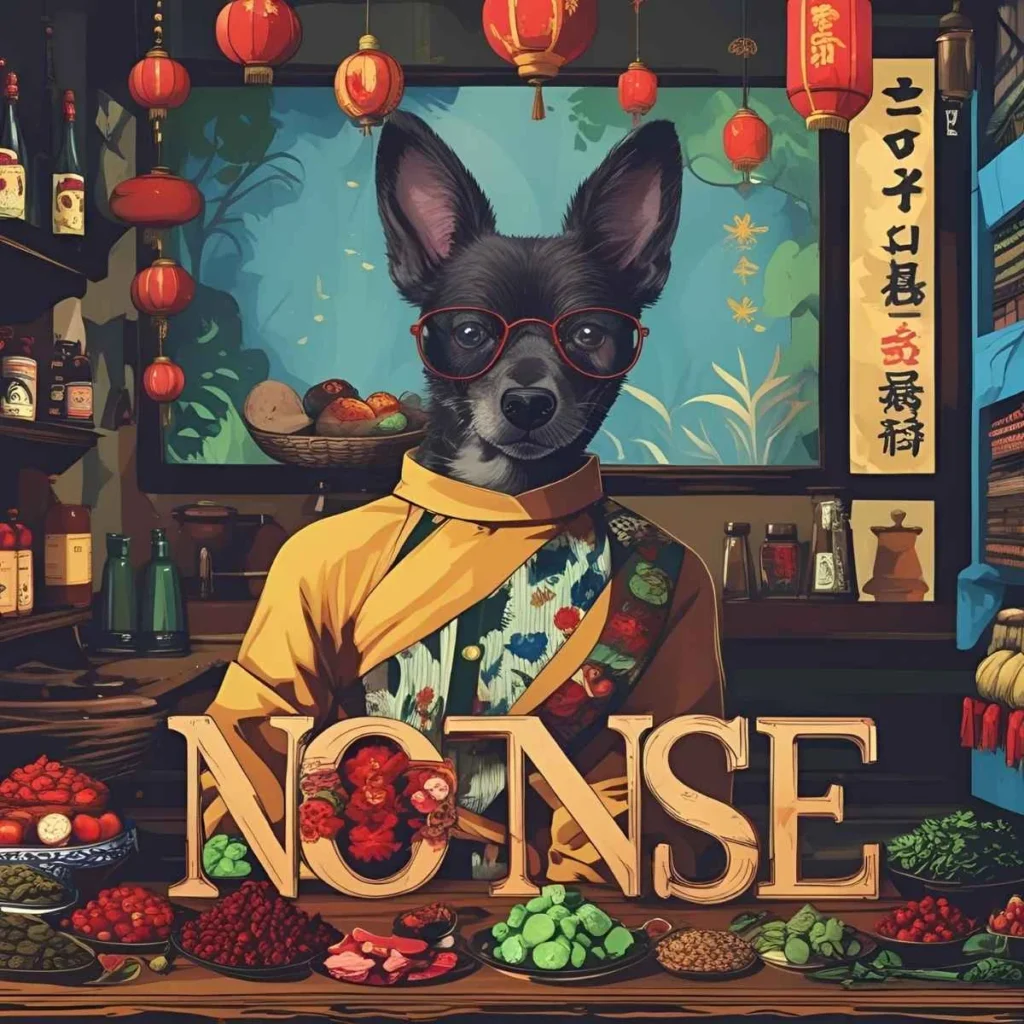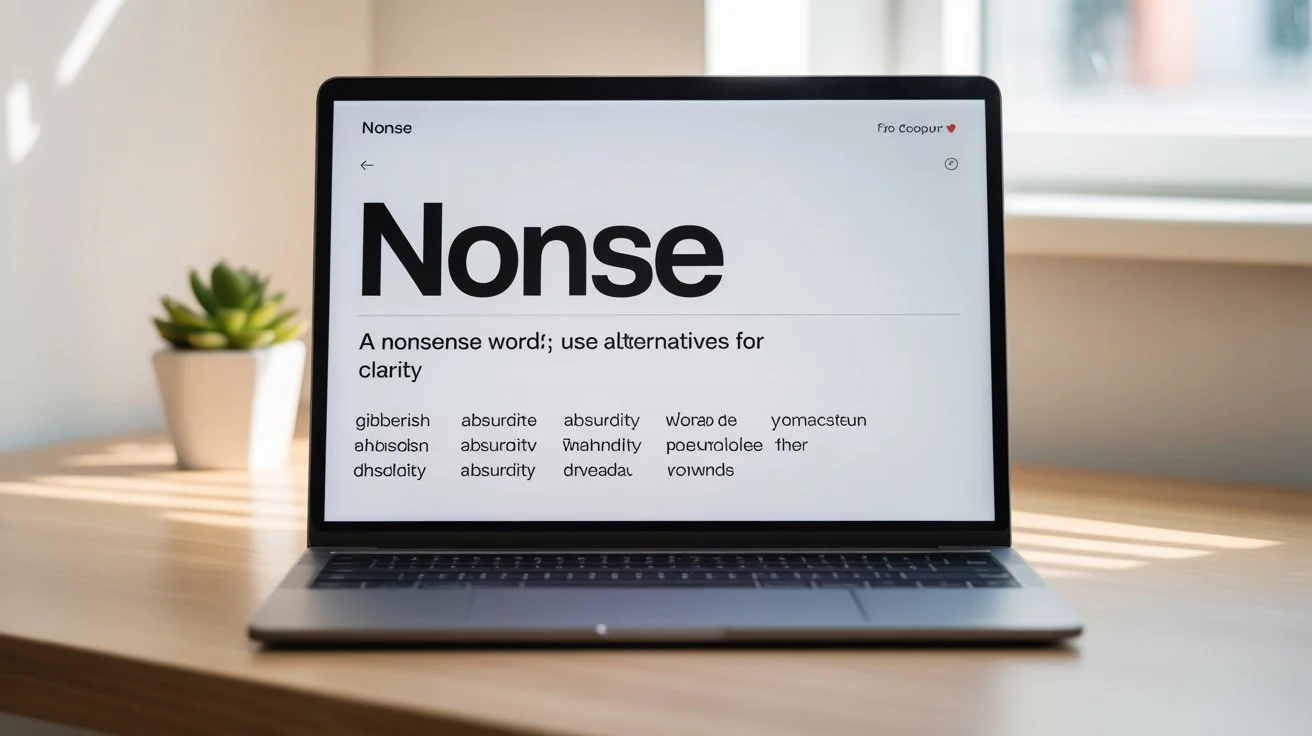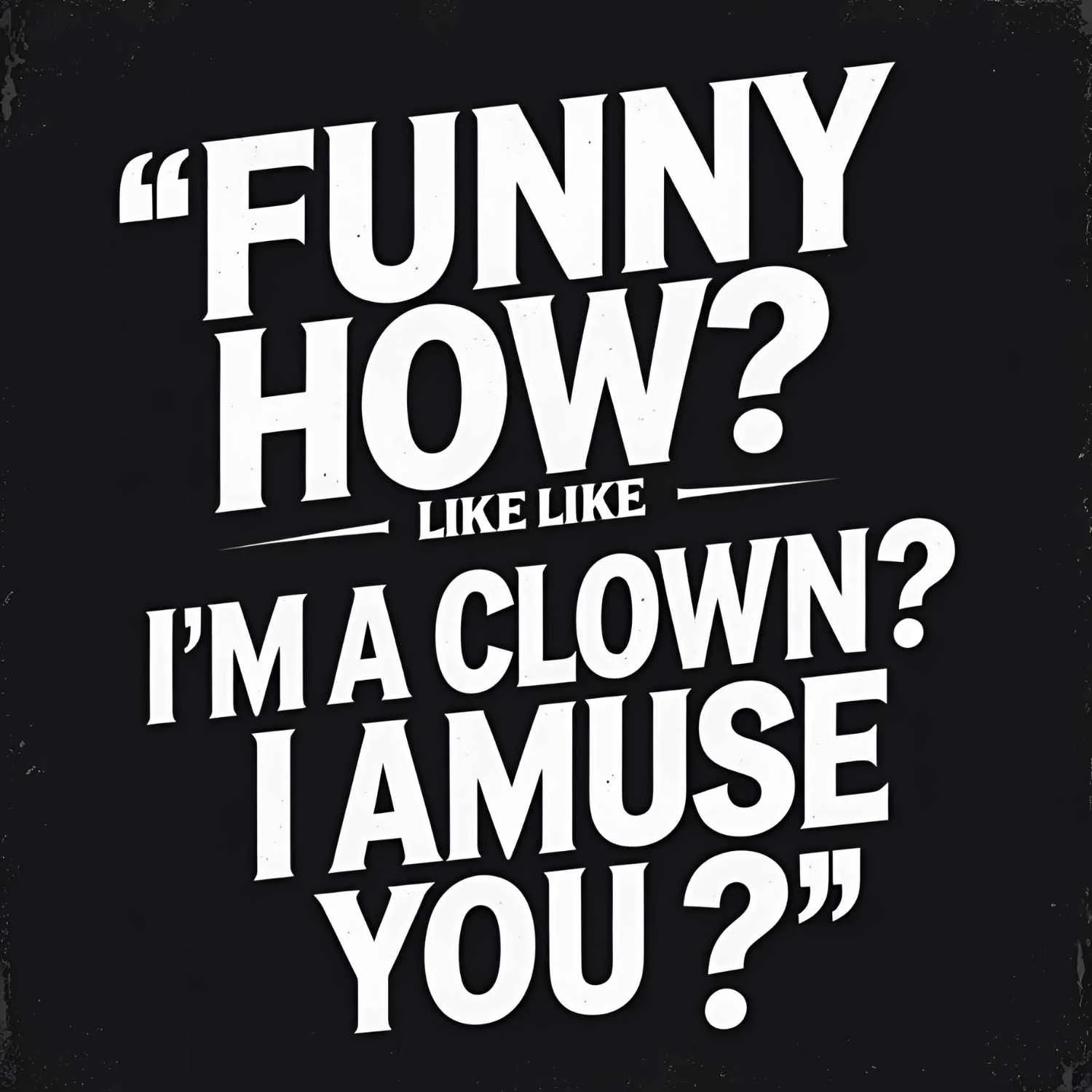In today’s fast-evolving digital and conversational world, word choices define tone, emotion, and impact. Among such curious words that often catch attention is the term “nonse.” While seemingly trivial or dismissed as slang by many, this word carries weight in certain dialects, text messages, and casual conversations.
If you’ve seen “nonse” in texts, forums, or casual chats and wondered what it really means, how to respond to it, or even avoid it in professional use, you’re in the right place.
This article goes far beyond surface-level definitions. Here, we’ll explore the true meaning of “nonse,” what it stands for in text, its modern 2025 usage, and a range of polite, professional, and casual alternatives.
🔍 What Does “Nonse” Mean?
“Nonse” is a colloquial or slang variation of the word nonsense. It is commonly used to express dismissal, disbelief, or annoyance. However, due to its casual nature, “nonse” is rarely used in professional communication.
Example:
“That’s just nonse. I’m not buying it.”
But that’s not the whole story. In British slang, “nonse” has a much darker and offensive meaning, often used as a derogatory term. This is why its use is heavily discouraged in formal and even casual public communication.
🛑 Important Note (2025 Update): Due to the potential for misunderstanding or offensive interpretation, many content creators and professionals avoid using the word altogether and instead choose safer, respectful alternatives depending on the situation.
🧠 Stand For and Meaning in Text

When used in text messages, “nonse” is often a lazy or phonetic spelling of “nonsense.” It’s typed quickly, especially in casual conversations, to indicate disbelief or frustration.
However, due to its double meaning, it can be misinterpreted, especially across cultures or countries.
✅ Acceptable Interpretation (Texting/Informal):
- “What you’re saying makes no sense.”
- “That’s ridiculous.”
- “I can’t believe that.”
❌ Cautionary Interpretation (Slang/Offensive):
In certain contexts (particularly U.K. slang), “nonse” or “nonce” refers to a sex offender, specifically someone who has committed crimes against children. This makes it an extremely sensitive and inappropriate word in any professional or public context.
📈 2025 Linguistic Shift: Why the Word is Being Replaced

In 2025, online communication has become even more sensitive to tone and connotation. AI moderation, community standards, and social responsibility in language have pushed platforms to flag or restrict words like “nonse.”
As a result:
- Google auto-suggest now deprioritizes the word.
- Social media algorithms reduce its visibility.
- AI grammar checkers (like Grammarly or ChatGPT writing aids) often mark it as a “tone issue” or inappropriate.
This makes it vital for writers, creators, and even casual users to use cleaner alternatives that are equally expressive but far more respectful.
💡 10 Intelligent Alternatives to “Nonse” (With Contextual Usage)
Here are 10 powerful, safe, and stylish alternatives you can use instead of “nonse.” Each one is tailored for a specific tone—whether you’re being professional, casual, humorous, or sarcastic.
1. Nonsense
✅ Classic and clear.
“That’s complete nonsense. There’s no logic in it.”
🔹 Use when: You need a neutral and widely understood term.
2. Absurd
✅ Sophisticated and effective.
“The idea that he can finish in an hour is absurd.”
🔹 Use when: You want to sound assertive but remain professional.
3. Ridiculous
✅ Casual with flair.
“You paid that much for coffee? That’s ridiculous!”
🔹 Use when: You’re reacting with surprise or mockery.
4. Preposterous
✅ Advanced vocabulary, powerful tone.
“The claims in that report are simply preposterous.”
🔹 Use when: You’re challenging an argument or statement with a sharp edge.
5. Laughable
✅ Subtly sarcastic.
“His excuses are laughable at best.”
🔹 Use when: You want to subtly criticize without sounding rude.
6. Unbelievable
“Honestly, it’s unbelievable how they handled that situation.”
🔹 Use when: You’re expressing disbelief without offense.
7. Outlandish
✅ Colorful and descriptive.
“That’s an outlandish proposal—but let’s hear it.”
🔹 Use when: You want to show shock or skepticism with humor.
8. Bizarre
✅ Best for describing strange behavior or ideas.
“Her explanation was bizarre—it didn’t align with any facts.”
🔹 Use when: Something doesn’t follow normal logic or behavior.
9. Bogus
✅ Slang but safe.
“That’s a bogus excuse, and you know it.”
🔹 Use when: You’re speaking informally and calling out dishonesty.
10. Unfounded
✅ Professional and neutral.
“His claims are entirely unfounded and lack evidence.”
🔹 Use when: Writing formal emails, articles, or reports.
🗣️ Choosing the Right Alternative Based on Tone
| Tone/Setting | Best Alternatives |
|---|---|
| Professional Email | Unfounded, Absurd, Preposterous |
| Friendly Conversation | Ridiculous, Bogus, Unbelievable |
| Social Media Post | Laughable, Outlandish, Nonsense |
| Academic Discussion | Preposterous, Unfounded, Absurd |
| Satirical Article | Bizarre, Laughable, Outlandish |
Using the right word based on your tone and audience is not only smart—it helps you avoid misunderstandings and maintains clarity and respect.
🧾 Modern Usage Examples of Replacing “Nonse” (2025 Style)
Let’s break down a few real-world examples of how you can replace “nonse” in text or speech without sounding bland.
Before (Sloppy/Casual):
“Bruh that’s nonse, he ain’t do that.”
After (Improved, Clear):
“Bruh that’s ridiculous, no way he did that.”
Before (Risky/Offensive):
“I’m done with his nonse.”
After (Polished):
“I’m tired of his bogus excuses.”
Before (Ambiguous/Confusing):
“That whole convo was nonse.”
After (Clear & Smooth):
“That whole conversation was nonsense—totally pointless.”
🚨 Why You Should Avoid “Nonse” Entirely in 2025
- It’s misinterpreted internationally: Words with multiple meanings are prone to confusion.
- Algorithms flag it: AI and moderation tools now flag potentially offensive or unclear terms.
- It doesn’t age well: What sounds cool in 2024 might become offensive by 2026.
- It weakens your credibility: Using lazy slang in formal contexts reduces reader trust.
📘 Quick Tips for Replacing Risky Slang in Writing
- Use a tone analyzer tool: Tools like Grammarly, Hemingway, or ChatGPT can guide you.
- Read your writing aloud: If it sounds dismissive or unclear, change it.
- Consider your audience: Adjust based on who will read your message.
- Stay up to date: Language evolves—stay informed with language updates.
- Err on the side of clarity: Especially in written communication, clarity always wins.
🎯 Final Thoughts
In 2025, being thoughtful about language is more important than ever. While words like “nonse” might seem harmless in casual settings, they carry baggage—social, linguistic, and even cultural.
If you want to be taken seriously, or just want your communication to be clear, classy, and respectful, it’s best to ditch risky slang and lean into strong, stylish alternatives.
You don’t have to sound boring to be smart. Use words like ridiculous, unbelievable, or outlandish—and you’ll never need to rely on “nonse” again.





